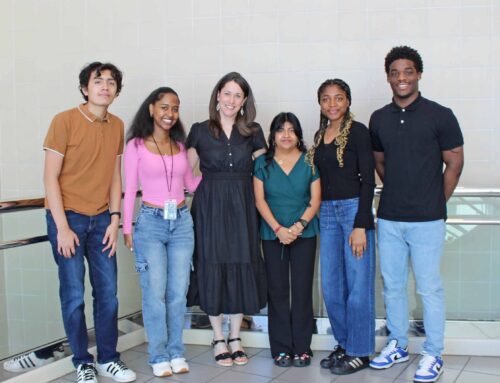At a board meeting before spring break, Richardson ISD Supt. Jeannie Stone told the district’s trustees of her visit to an elementary school about a year ago. The principal led her into a fourth-grade classroom with the highest writing scores in the district. Stone observed in amazement as the teacher practiced her craft.
“All I was thinking as I was watching this teacher was, ‘I don’t need this teacher at this school. I need this teacher at Carolyn Bukhair,’ ” Stone told the board.
This morning, Richardson ISD officially rolls out its $3.2 million plan to put its best teachers and principals into its four worst-performing elementary schools, each one filled with impoverished students: Carolyn Bukhair and RISD Academy in Far North Dallas, and Forest Lane Academy and Thurgood Marshall in Lake Highlands. Their attendance zones wrap around rows of low-income apartment complexes.
The plan is called Accelerating Campus Excellence, or ACE, and is modeled after the same-named effort launched by Dallas ISD three years ago. Stone pointed to data that the program has been extremely successful in Dallas. According to Dallas ISD’s website, “academic performance has increased in core content areas, attendance has improved, disciplinary referrals have dramatically decreased, and parents feel more positive about their child’s school.”
Not only does ACE place top leaders, teachers and staff at struggling schools, it also provides services before and after school hours. The four RISD schools will open at 7 a.m. and stay open until 6 p.m., serving breakfast, lunch and dinner to students who otherwise might go hungry. The extra hours also will allow students to participate in clubs or seek tutoring and homework help.
Essentially, the plan means that every principal, teacher and staff member at every one of these four schools has to resign, with the promise of a job in RISD next year but not necessarily the same job at the same school. It also means that the district’s best principals, teachers and staffers will be invited away from their current schools to join one the four new ACE schools, with a $10,000 stipend incentive for teachers and $15,000 for principals.
That’s a lot of change, and trustees at the March 5 meeting acknowledged both the hard work of the employees who were being asked to relinquish their jobs, and the justified concerns of parents elsewhere about losing their best educators.
The board didn’t vote on ACE at the meeting; it will be up to trustees to allocate the $3.2 million from RISD’s budget, but at this point, Stone was asking more for their blessing than their approval — and they willingly gave it.
“What I’ve come to realize is annual interventions — and despite our best intentions — it’s not enough to deliver on the promise of ‘all means all,’ ” said tenured Trustee Kim Caston. This was a reference to Stone’s presentation title, which noted RISD’s repeated written and verbal commitments to “all” children, but “those can’t just be words,” Stone said.
“Every one of us in this room is convicted about equity and student success,” Trustee Kristen Kuhne said at the meeting. “We can’t keep telling those 3,000 students to wait.”
“It is absolutely time to make ‘all means all’ more than a slogan on a T-shirt,” Kuhne continued, adding that the district “has to recognize that we haven’t set those students up for success.”
A looming lawsuit, claiming that the district’s electoral system has led to wide achievement gaps between white and minority students, wasn’t mentioned at the meeting. In a recent response, RISD acknowledged the gaps, just as they did at the board meeting, but denied the root cause claimed by the lawsuit. Neither Stone, her staff nor the trustees made a single reference to race during the hour-long discussion of ACE. They instead talked about socioeconomic status.
Of course, socioeconomic status is largely tied to race, especially in urban settings. Forest Lane Academy, for example, which is 90 percent economically disadvantaged, is also 57 percent black and 31 percent Hispanic, and only 6 percent white.
RISD officials steered clear of those data points, however. They instead looked at DISD’s data from three years of ACE implementation. “It’s almost fail-proof,” Stone told trustees, with Kuhne later agreeing, “You just don’t see results like that.”
“A lot of the things we’ve tried on campuses have been things we’ve thrown out there saying, ‘I hope this works,’ ” Board President Justin Bono said near the end of the meeting. “[ACE] is not something we’re taking a flyer on. This has proven results.”





